Quick Betimate
Popular Leagues
-
UEFA Nations League
-
England (78)
- FA Cup (1)
- Premier League (2)
- Championship (1)
- League 1 (1)
- League 2 (12)
- National League (1)
- National League North (2)
- National League South (2)
- EFL Trophy
- Premier League 2
- Championship Women (5)
- Derbyshire Senior Cup
- Development League 2 (20)
- FA Cup Women (1)
- FA Trophy (1)
- Isthmian Cup
- Isthmian Division One North (2)
- Isthmian Division One South (2)
- Isthmian Premier Division (2)
- National League Cup (1)
- Northern League Division One (6)
- Northern Premier League (2)
- Reserve Matches
- Southern Premier League Central (2)
- Southern Premier League South (2)
- Super League Women (2)
- U21 Premier League Cup (2)
- Northern Ireland Championship
- Northern Ireland Championship Women
- Northern Ireland Cup (1)
- Northern Ireland Intermediate Cup
- Northern Ireland League Cup Women
- Northern Ireland Premier
- Northern Ireland Premier Intermediate League
- Northern Ireland Premier League Women (4)
- Northern Ireland Reserve League
- Scotland Regional Cup (1)
- Wales League Cup Women
-
UEFA Champions League (4)
-
UEFA Europa League (4)
-
Spain (206)
- La Liga (10)
- Segunda
- Tercera Group 1 (1)
- Tercera Group 2 (9)
- Tercera Group 3 (9)
- Tercera Group 4 (1)
- Tercera Group 5 (9)
- Tercera Group 6 (9)
- Tercera Group 7 (9)
- Tercera Group 8 (9)
- Tercera Group 9 (9)
- Tercera Group 10 (9)
- Tercera Group 11 (1)
- Tercera Group 12 (9)
- Tercera Group 13 (9)
- Tercera Group 14 (1)
- Tercera Group 15 (9)
- Tercera Group 16 (9)
- Tercera Group 17 (9)
- Tercera Group 18 (9)
- Youth League
- Copa de Catalunya
- Copa del Rey
- Kings League - 40 mins play
- Primera Division RFEF Group 1 (10)
- Primera Division RFEF Group 2 (10)
- Primera Federacion Women
- Primera Women (1)
- Queens League - 40 mins play
- Regional Cup
- Regional League
- Segunda Division RFEF Group 1 (9)
- Segunda Division RFEF Group 2 (9)
- Segunda Division RFEF Group 3 (9)
- Segunda Division RFEF Group 4 (9)
- Segunda Division RFEF Group 5 (9)
- Segunda Federacion Women
- Tercera Federacion Women
-
USA (396)
-
Germany (127)
- Bundesliga I (9)
- Bundesliga II (9)
- DFB Pokal (1)
- Regionalliga Bayern (9)
- Regionalliga North (1)
- Regionalliga North East (9)
- Regionalliga South West (9)
- Regionalliga West (8)
- Oberliga Baden-Wuerttemberg (1)
- Oberliga Bayern North (9)
- Oberliga Bayern South (1)
- Oberliga Bremen (1)
- Oberliga Hamburg (1)
- Oberliga Hessen (10)
- Oberliga Mittelrhein (8)
- Oberliga Niederrhein (9)
- Oberliga Niedersachsen (2)
- Oberliga NOFV Nord (8)
- Oberliga NOFV Sud (1)
- Oberliga Rheinland-Pfalz/Saar (1)
- Oberliga Schleswig-Holstein (1)
- Oberliga Westfalen (1)
- 3. Liga (2)
- Bundesliga II Play-Offs
- Bundesliga II Women (7)
- Bundesliga Play-Offs
- Bundesliga U19 (1)
- Bundesliga Women (6)
- DFB Pokal Women (1)
- Regionalliga Play-Offs
- U19 Cup (1)
-
Italy (94)
- Serie A (2)
- Serie B (10)
- Serie C Group A
- Serie C Group B
- Serie C Group C
- Campionato Nazionale
- Campionato Primavera 1 (10)
- Campionato Primavera 2 (1)
- Serie D (56)
- Coppa Italia (1)
- Coppa Italia Women (1)
- Campionato Primavera 3
- Campionato Primavera 4
- Primavera Cup
- Serie A Women (4)
- Serie B Play-Offs
- Serie B Women
- Serie C Cup
- Serie C Play-Offs (9)
- U19 League Women
-
France (62)
-
Netherlands (32)
-
Scotland (28)
-
Japan J-League (10)
-
Japan J2-League (10)
-
Colombia Primera A (1)
-
Colombia Primera B (2)
-
Lebanon League (6)
-
Iran Pro League (8)
-
Indonesia Liga 1 (9)
-
Morocco GNF 1 (1)
-
Esport (66)
Other Leagues
-
Albania (1)
-
Algeria (32)
-
Andorra (7)
-
Angola (8)
-
Argentina (47)
-
Armenia (12)
-
Aruba (1)
-
Australia (118)
- A-League (6)
- A-League Women (3)
- Capital Territory NPL2 (4)
- Capital Territory NPL2 U23 League
- Capital Territory Premier League (4)
- Capital Territory Premier League Women
- Capital Territory Premier League Women Reserves
- Capital Territory U23 League
- Darwin Premier League
- FFA Cup Qualifying (11)
- New South Wales League 1 (1)
- New South Wales League 2
- New South Wales NPL Women
- New South Wales NPL2 Women
- New South Wales Premier League (8)
- New South Wales U20 League
- Northern NSW Division 1 (5)
- Northern NSW Premier League (1)
- Northern NSW Premier League Women
- Northern NSW Reserves League
- NPL Queensland (7)
- NPL Queensland U23
- NPL Queensland Women (10)
- NPL Victoria (7)
- NPL Victoria U23
- NPL Victoria Women (6)
- NSW League 1 U20
- Queensland PL 2 U23
- Queensland PL U23 (1)
- Queensland Premier League
- Queensland Premier League 2
- Queensland Premier League 2 Women
- Queensland Premier League 3
- Queensland Premier League Women
- SA Premier League Reserves
- SA Premier League Women (5)
- SA Premier League Women Reserves
- South Australia Premier League (6)
- South Australia State League 1 (6)
- South Australia State League Reserves
- Sunday League Premier Division
- Sunday League Premier Division Reserve
- Tasmania Championship (4)
- Tasmania Championship Women
- Tasmania NPL U21 League
- Tasmania Premier League (4)
- Tasmania South Division 1
- Tasmania Super League Women
- Victoria Cup Women
- Victoria PL 1 U23
- Victoria Premier League 1 (7)
- Victoria Premier League 2
- Victoria State League 1
- Victoria State League 1 Reserves
- Victoria State League 2
- WA Premier League Women
- WA Premier League Women U21
- WA State League 1 Reserves
- WA State League Reserves Cup
- Western Australia Premier League (6)
- Western Australia State League 1 (6)
- Western Australia State League 1 Women
- Western Australia State League 2
- Western Australia U23 League
- Australian Matches
-
Austria (33)
-
Azerbaijan (11)
-
Bahrain (12)
-
Bangladesh (5)
-
Barbados (1)
-
Belarus (10)
-
Belgium (15)
-
Belize
-
Benin
-
Bhutan
-
Bolivia (14)
-
Bosnia & Herzegovina (19)
-
Botswana (8)
-
Brazil (179)
- Serie A (10)
- Serie B (1)
- Serie C (2)
- Amazonense
- Campeonato Acreano
- Campeonato Alagoano
- Campeonato Amapaense (2)
- Campeonato Baiano 2 (5)
- Campeonato Brasileiro A2 Women (8)
- Campeonato Brasileiro Serie B U20 (8)
- Campeonato Brasiliense
- Campeonato Capixaba
- Campeonato Carioca A2 (6)
- Campeonato Cearense B
- Campeonato Goiano
- Campeonato Goiano 2 (4)
- Campeonato Maranhense (4)
- Campeonato Matogrossense
- Campeonato Mineiro 2 (6)
- Campeonato Mineiro U20 (6)
- Campeonato Paraibano
- Campeonato Paranaense
- Campeonato Paranaense 2 (5)
- Campeonato Paulista A2
- Campeonato Paulista A3
- Campeonato Paulista A4
- Campeonato Paulista U20 (24)
- Campeonato Pernambucano
- Campeonato Piauiense
- Campeonato Potiguar
- Campeonato Rondoniense
- Campeonato Sergipano
- Campeonato Sul-Matogrossense
- Campeonato Tocantinense
- Campeonato U20 Women
- Copa Alagoas
- Copa Rio Women
- Copa Verde
- Matches (5)
- Matches Women
- Paraense (2)
- Paulista Serie B
- Paulista Women (4)
- Serie A U20 (10)
- Serie A1 Women (1)
- Serie A2 Women
- Serie A3 Women
- Serie D (32)
- U20 Cup
- U20 League (2)
- U20 Women Cup
- Campeonato Roraimense
- Copa do Brasil (32)
- Women’s Friendly
-
Bulgaria (8)
-
Burkina Faso
-
Burundi (8)
-
Cambodia (6)
-
Cameroon (8)
-
Canada (8)
-
Chile (31)
-
China (45)
-
Colombia (6)
-
Congo - Brazzaville
-
Costa Rica (6)
-
Côte d’Ivoire
-
Croatia (16)
-
Cuba
-
Cyprus (8)
-
Czech Republic (43)
-
Denmark (54)
- Superligaen (6)
- Division 1 (6)
- Cup (4)
- U19 League
- Danish Womens 1.Division
- Danish Womens Elitedivisionen (3)
- 2 Division Women
- Cup Women
- Danmarksserien Promotion (10)
- Danmarksserien Relegation (10)
- Division 2 (6)
- Division 3 (6)
- Future Cup
- Play-Offs Women (3)
- Series Group 1
- Series Group 2
- Series Group 3
- Series Group 4
- Superligaen Play-Offs
- U21 League
-
Djibouti
-
Dominica
-
Dominican Republic
-
Ecuador (7)
-
Egypt (19)
-
El Salvador (8)
-
Estonia (21)
-
Ethiopia (10)
-
Faroe Islands (12)
-
Fiji
-
Finland (94)
-
Gambia (3)
-
Georgia (8)
-
Ghana (11)
-
Gibraltar (3)
-
Greece (26)
-
Guatemala
-
Haiti
-
Honduras (5)
-
Hong Kong SAR China (10)
-
Hungary (8)
-
Iceland (46)
-
India (5)
-
Indonesia (9)
-
Iran (17)
-
Iraq (14)
-
Ireland (21)
- Republic of Ireland FAI Cup (3)
- Republic of Ireland FAI Intermediate Cup
- Republic of Ireland First Division (5)
- Republic of Ireland Leinster Senior Cup
- Republic of Ireland Leinster Senior League (2)
- Republic of Ireland Munster Senior Cup
- Republic of Ireland Munster Senior League
- Republic of Ireland National League Women (6)
- Republic of Ireland Premier Division (5)
- Republic of Ireland U20 League
-
Israel (9)
-
Jamaica (7)
-
Japan (57)
-
Jordan (6)
-
Kazakhstan (18)
-
Kenya (8)
-
Kuwait (9)
-
Kyrgyzstan
-
Latvia (12)
-
Lebanon (6)
-
Liberia
-
Liechtenstein (1)
-
Lithuania (36)
-
Luxembourg (18)
-
Macau SAR China
-
Macedonia (15)
-
Malawi (5)
-
Malaysia
-
Mali (4)
-
Malta (2)
-
Mauritania (2)
-
Mexico (5)
-
Moldova (10)
-
Mongolia
-
Montenegro (7)
-
Morocco (1)
-
Mozambique
-
Myanmar (Burma)
-
Namibia
-
Nepal
-
New Zealand (16)
-
Nicaragua (5)
-
Niger
-
Nigeria (10)
-
Norway (77)
- Eliteserien (1)
- Division 1 (1)
- Cup (15)
- Cup Women (10)
- Division 1 Play-Offs
- Division 1 Women (6)
- Division 2 Group 1 (7)
- Division 2 Group 2 (1)
- Division 3 Group 1 (7)
- Division 3 Group 2 (7)
- Division 3 Group 3 (1)
- Division 3 Group 4 (7)
- Division 3 Group 5 (7)
- Division 3 Group 6 (2)
- Interkretsserie U19
- Toppserien Women (5)
- U19 Elite League
- Youth Cup
-
Oman (6)
-
Panama (1)
-
Paraguay (7)
-
Peru (20)
-
Philippines (1)
-
Poland (80)
-
Portugal (36)
-
Puerto Rico
-
Qatar (9)
-
Romania (59)
-
Russia (59)
-
Rwanda (8)
-
Saint Kitts and Nevis
-
San Marino (3)
-
Saudi Arabia (17)
-
Senegal
-
Serbia (18)
-
Seychelles
-
Sierra Leone
-
Singapore (6)
-
Slovakia (27)
-
Slovenia (10)
-
Solomon Islands
-
South Africa (4)
-
South Korea (32)
-
Suriname
-
Sweden (84)
- Europe Friendlies
- Allsvenskan Qualification
- Superettan Qualification
- 1.div Norra (8)
- 1.div Södra (8)
- 2.div Norra Götaland (7)
- 2.div Norra Svealand (7)
- 2.div Norrland (7)
- 2.div Södra Götaland (7)
- 2.div Södra Svealand (7)
- 2.div Västra Götaland (7)
- Allsvenskan (1)
- Cup Women (2)
- Damallsvenskan (8)
- Elitettan (7)
- Juniorallsvenskan (7)
- Superettan (1)
-
Switzerland (26)
-
Taiwan
-
Tajikistan
-
Tanzania (3)
-
Thailand (7)
-
Togo
-
Trinidad and Tobago (6)
-
Tunisia (12)
-
Turkey (42)
-
Uganda (10)
-
Ukraine (18)
-
United Arab Emirates (9)
-
Uruguay (14)
-
Uzbekistan (13)
-
Venezuela
-
Vietnam (13)
-
Wales (1)
-
Zambia (9)
-
Zimbabwe (9)
Unveiling Xavi Hernández: The Spanish Football Icon's Journey as a Player and Manager

Xavi, whose full name is Xavier Hernández Creus, is a renowned Spanish football player and manager. He was born on January 25, 1980, in Terrassa, Barcelona, Catalonia. Xavi's exceptional skills and talent in football made him one of the best midfielders in the world during the early 21st century. Let's delve into the early life and background of this legendary football figure, tracing his journey from childhood to his remarkable achievements.
| Name | Xavi |
| Born | Jan 25, 1980 |
| Age | 41 years |
| Birthplace | Terrassa, Spain |
| Height | 5ft 7ins |
Early Life and Background
Xavi was born into a football-loving family in Terrassa, Barcelona, Catalonia. His father, Joaquim Hernández, was a former professional footballer who played for Sabadell in the first division. Growing up in such an environment, Xavi was immersed in the world of football from an early age, with his father's influence playing a significant role in shaping his passion for the game.
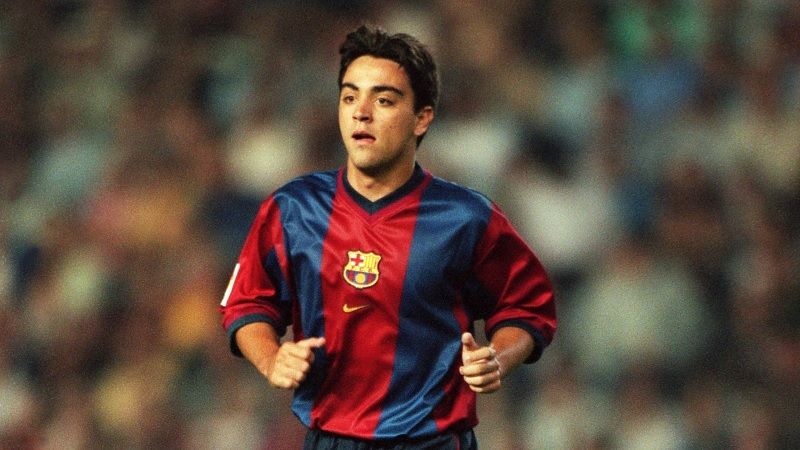
Terrassa, Barcelona, Catalonia, provided the backdrop for Xavi's childhood. It was in this vibrant city that he spent his early years, surrounded by the rich football culture of the region. The energetic atmosphere and love for the game in Terrassa nurtured Xavi's budding talent and fueled his aspirations to become a professional footballer.
Xavi's Passion for the Game
From a young age, Xavi's passion for football was evident. He exhibited impressive athletic abilities and a deep love for the sport. Xavi's commitment to the game set him on a path toward realizing his dreams of becoming a top-level football player.
Joining FC Barcelona's Youth Squad
At the age of 11, Xavi's talent caught the attention of FC Barcelona, one of the most prestigious football clubs in Spain. He joined the club's renowned youth squad, known as La Masia, which has produced many talented players over the years. Xavi's entry into La Masia marked a significant milestone in his football journey, providing him with a platform to develop his skills and showcase his potential.
Xavi's dedication and hard work paid off as he rapidly rose through the ranks of FC Barcelona's academy. His exceptional performance and technical abilities led to his inclusion in the 1997-98 reserve team, which won its division and earned a promotion. This success further solidified Xavi's position within the club and hinted at the remarkable career that lay ahead.
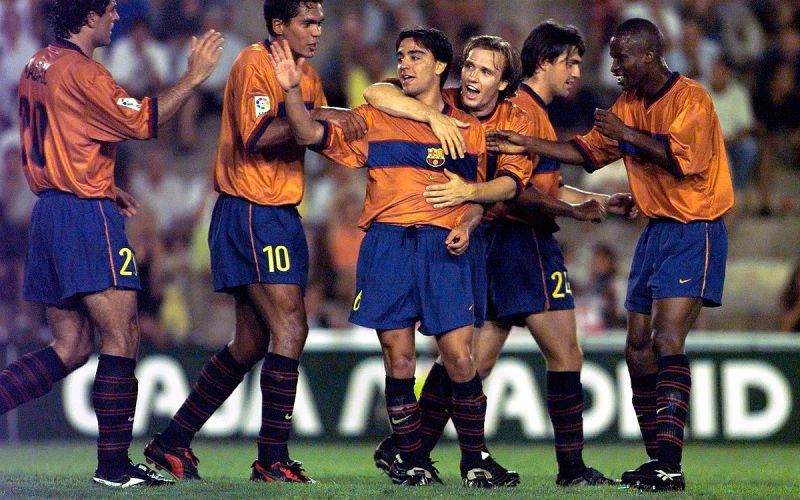
Xavi's dedication and hard work paid off as he rapidly rose through the ranks of FC Barcelona's academy
During his early years at Barcelona, Xavi attracted attention from other clubs, including Milan. At the age of 19, he came close to signing with the Italian team. Although his father approved the move, Xavi's mother expressed her desire for him to remain in Barcelona. Ultimately, Xavi decided to stay with his beloved club, a decision that would shape his illustrious career.
Xavi's Family and Football Legacy
Xavi comes from a football-rich family background. His father, Joaquim Hernández, had a successful career as a professional footballer, leaving a lasting impact on Xavi's journey in the sport. The influence of his family and their deep involvement in football helped mold Xavi into the remarkable player and leader he became.
Xavi's mother, Maria Mercè Creus, played a significant role in his career. When the opportunity to move to Milan arose, it was her influence that led Xavi to reconsider his decision. Her belief in the importance of remaining at Barcelona, coupled with Xavi's own attachment to the club, convinced him that his path lay in staying true to his roots.
Rise to Prominence as a Player
Xavi Hernandez, born on January 25, 1980, in Terrassa, Spain, is widely regarded as one of the best midfielders in the world. His journey to prominence as a player is a testament to his exceptional talent and dedication to the sport. Join me as we delve into the remarkable rise of this football maestro and explore the key moments and achievements that shaped his career.
Early Days and Barcelona Youth Squad
Xavi's football journey began at a young age when, at the tender age of 11, he joined the youth squad of FC Barcelona, a first-division football club near his hometown. This marked the first step towards a future that would see him etch his name into footballing history.
Nurturing Talent at Barcelona
Under the guidance of renowned coaches and mentors, Xavi flourished within the Barcelona youth setup. His remarkable technical skills, vision, and understanding of the game quickly caught the attention of those around him. It was during this time that Xavi's potential as a player began to shine, setting the stage for his eventual rise to prominence.
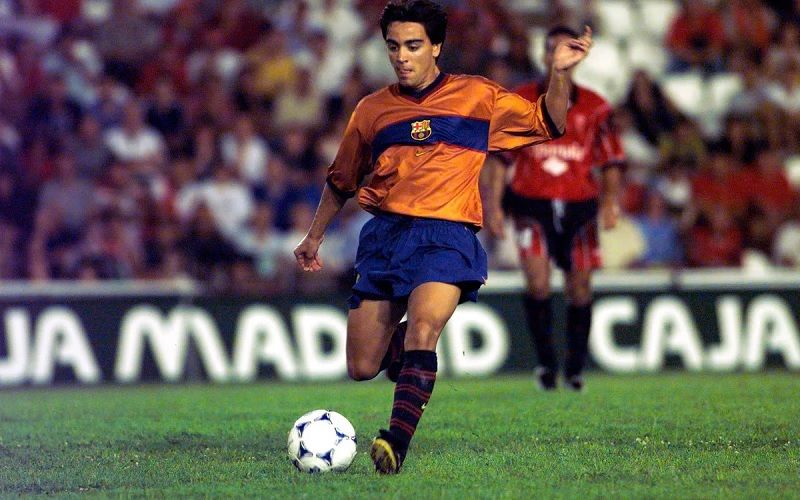
Xavi flourished within the Barcelona youth setup
After progressing through the ranks, Xavi made his first-team debut for Barcelona in 1998. This marked a significant milestone in his career, as he took the field alongside seasoned professionals and showcased his abilities on the grand stage. His performances demonstrated maturity beyond his years, hinting at the greatness that lay ahead.
Midfield Maestro
As Xavi continued to hone his craft, he established himself as a pivotal figure in Barcelona's midfield. His exceptional passing range, precise ball control, and ability to dictate the tempo of the game made him a vital cog in the team's success. Xavi's presence on the pitch was a masterclass in orchestrating play and creating scoring opportunities for his teammates.
International Triumphs
Xavi's brilliance extended beyond club football. He represented the Spanish national team with distinction, playing a crucial role in their historic achievements. His involvement in Spain's triumphs at the UEFA European Championships in 2008 and 2012, as well as their FIFA World Cup victory in 2010, solidified his status as a global football icon.
Playing Style and Influence
Xavi's playing style was defined by his exceptional technical abilities, astute decision-making, and impeccable passing accuracy. His vision and understanding of the game allowed him to control matches from midfield, earning him admiration and respect from fans, teammates, and opponents alike. Xavi's influence on the pitch was unrivaled, and his impact was felt far beyond the numbers on the scoreboard.
Team Success and Individual Accolades
Throughout his illustrious career, Xavi played an integral role in Barcelona's unprecedented success. He helped the club secure numerous domestic and international titles, including eight La Liga championships. Individually, Xavi received several prestigious awards and recognitions, such as his third-place finishes in the FIFA World Player of the Year awards in 2009 and the FIFA Ballon d'Or in 2010 and 2011.
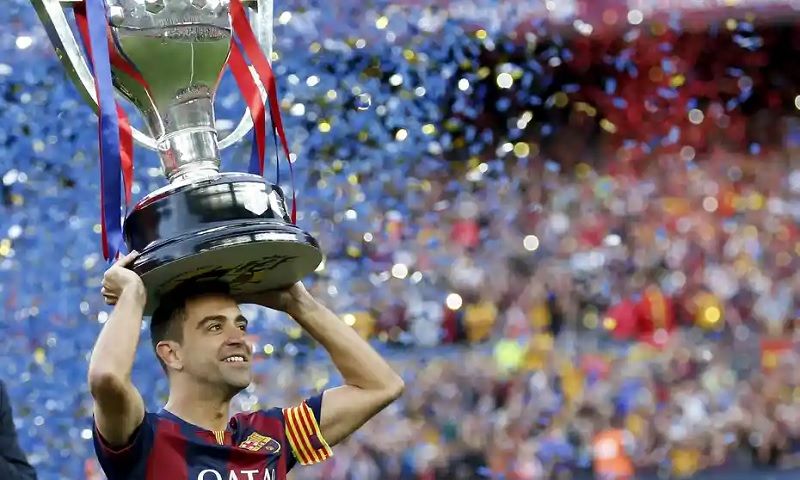
Xavi played an integral role in Barcelona's unprecedented success
Beyond the football pitch, Xavi Hernandez exemplified compassion and generosity. He established a charity program to aid victims of the refugee crisis, demonstrating his commitment to making a positive impact on society. This dedication to philanthropy further endeared him to fans around the world, solidifying his reputation as not just a footballing legend but also a role model off the field.
Managerial Career
Xavi Hernandez, the legendary Spanish midfielder, made a successful transition from his illustrious playing career to coaching. Since retiring from professional football in 2019, Xavi has been carving his path as a manager and has already made a significant impact in the football world. In this article, we will explore Xavi's managerial career, his accomplishments, and the potential for his return to his beloved club, Barcelona.
Xavi's transition to coaching
Following his retirement, Xavi wasted no time in pursuing a coaching career. In May 2019, he was appointed as the head coach of Al Sadd, a prominent club in the Qatar Stars League. This marked the beginning of an exciting new chapter for the Spanish maestro as he took on the responsibility of leading a team from the touchline.
Xavi's managerial role at Al Sadd
Xavi quickly established himself as a respected figure in the coaching world during his tenure at Al Sadd. He implemented his footballing philosophy, emphasizing possession-based, attacking football, which mirrored his style of play as a player. Under his guidance, Al Sadd experienced a period of dominance, winning seven titles in less than three years. Xavi's astute tactical decisions and leadership qualities played a crucial role in shaping the team's success.
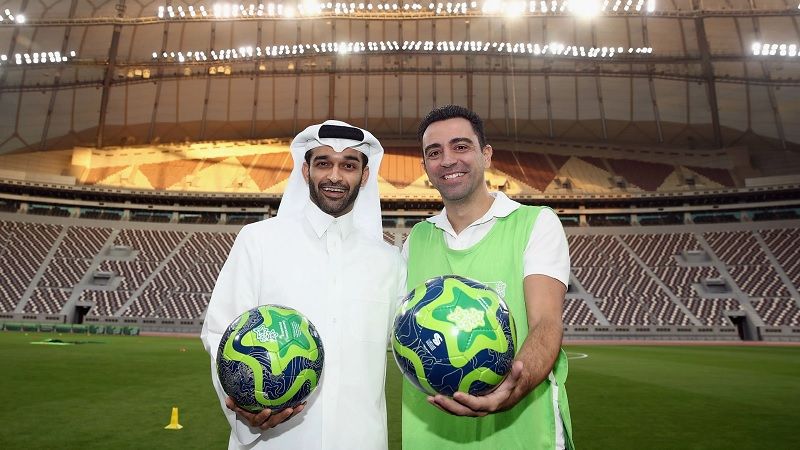
Xavi's managerial role at Al Sadd
Xavi's managerial record at Al Sadd speaks volumes about his abilities. With a win percentage of 68.5% in 89 matches, Xavi has showcased his proficiency in leading his team to victory. During the 2021/22 campaign, Al Sadd's remarkable performance in the Qatar Stars League saw them win all of their first seven fixtures, demonstrating Xavi's impact on the team. His success at Al Sadd has caught the attention of football enthusiasts and clubs alike, with Barcelona being a notable admirer of his managerial prowess.
Xavi's potential move to Barcelona
As Barcelona sought a change in leadership, Xavi emerged as a strong candidate to take charge of his former club. The prospect of Xavi returning to Catalonia has excited fans and pundits alike, considering his deep-rooted connection with the club. Having spent the entirety of his professional career in Barcelona and graduating from the esteemed La Masia Academy, Xavi possesses a profound understanding of the club's philosophy and values. His potential appointment as Barcelona's head coach represents a homecoming for one of the most influential figures in the club's history.
Xavi's tactical genius and leadership skills
Xavi's managerial success can be attributed to his tactical acumen and exceptional leadership skills. Like his playing style, Xavi emphasizes a possession-based approach that prioritizes intelligent and intricate passing to control the game. His ability to find and exploit spaces, orchestrate play from the center of the park, and develop young talents are all qualities that make him a highly regarded manager. Xavi's tactical brilliance combined with his natural ability to inspire and motivate players make him a promising figure in the world of coaching.
Xavi's success as a player and his connection with Barcelona
Xavi's success as a player further strengthens his credentials as a manager. Throughout his playing career, he won numerous accolades, including 32 trophies, and was recognized as one of the most decorated Spanish players in history. His deep connection with Barcelona, both as a player and a leader on the pitch, adds a layer of understanding and familiarity to his managerial approach. This unique perspective enables him to relate to the players and instill the values that have defined Barcelona's success over the years.
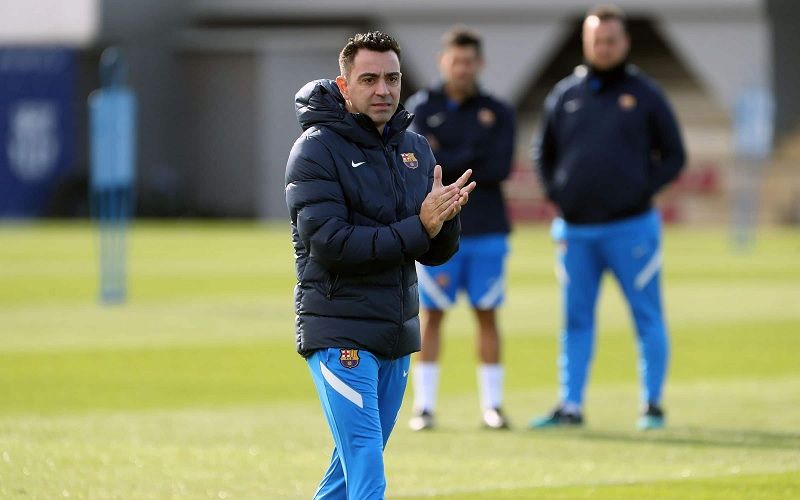
Xavi's success as a player and his connection with Barcelona
When evaluating Xavi's managerial potential, it is impossible to overlook comparisons to other successful managers. Xavi's early managerial record at Al Sadd has drawn parallels to his former Barcelona teammate and current Manchester City manager, Pep Guardiola. Both managers share a similar footballing philosophy and possess the ability to create winning teams that play attractive, attacking football. Xavi's record after 25 games in his first season as a manager compares favorably to Guardiola's, further highlighting his potential for future success.
Personal Life and Net Worth
Xavi's personal life has also garnered attention over the years. He fell in love with Nuria Cunillera, a fashion journalist, and the two eventually got married. Xavi's dedication and commitment to the game can be seen in his decision to propose to Nuria despite initially facing competition from another player. Their relationship stands as a testament to Xavi's determination both on and off the field.
Xavi's Net Worth: A Closer Look
Xavi's net worth has been a topic of interest among fans and enthusiasts. Although exact figures vary across sources, it is estimated that his net worth ranges between $40 to $50 million. Xavi earned a substantial income throughout his career, with a salary of $12 million from FC Barcelona before retiring from club football in 2019. His net worth reflects the financial success he achieved through his football career and endorsements with prominent brands.
Xavi's Post-Retirement Career
Following his retirement from professional football, Xavi embarked on a career in coaching. He became the manager of the Qatari club Al Sadd SC, where he previously played as a central midfielder. Under Xavi's guidance, Al Sadd SC achieved remarkable success, winning 62 out of 91 games. In November 2021, Xavi made a highly anticipated return to FC Barcelona as a manager, further cementing his connection to the club.
Challenges Faced as a Manager
When Xavi made the transition from a world-class player to a manager, he faced the challenge of earning the respect and trust of his players. Despite his illustrious playing career, managing a team requires a different skill set and approach. Xavi had to prove himself as a competent tactician and leader on the sidelines, gaining the confidence of both the players and the club's hierarchy.
Balancing a Big Squad
Managing a big squad is never an easy task, and Xavi had to find a way to keep all the players happy and motivated. With a wealth of talent at his disposal, he needed to maintain a delicate balance between providing opportunities for everyone and ensuring a cohesive team dynamic. This challenge required Xavi to effectively communicate with his players and make tough decisions regarding team selection and playing time.
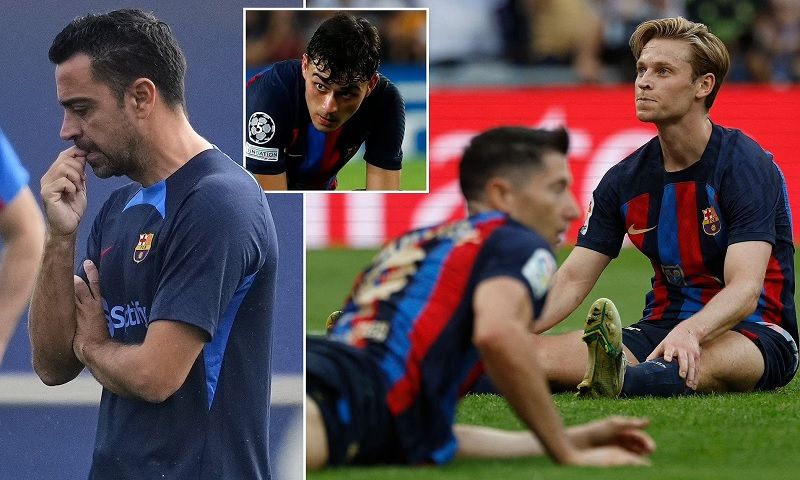
Xavi had to prove himself as a competent tactician and leader on the sidelines
Stepping out of Guardiola's Shadow
As a local lad taking over the first team at Barcelona, Xavi faced the inevitable comparisons to his former teammate and manager, Pep Guardiola. Guardiola's success and influence on the club were undeniable, making it challenging for Xavi to establish his own identity and style of management. However, Xavi has shown determination to make his mark and overcome this challenge, focusing on his own ideas and philosophy.
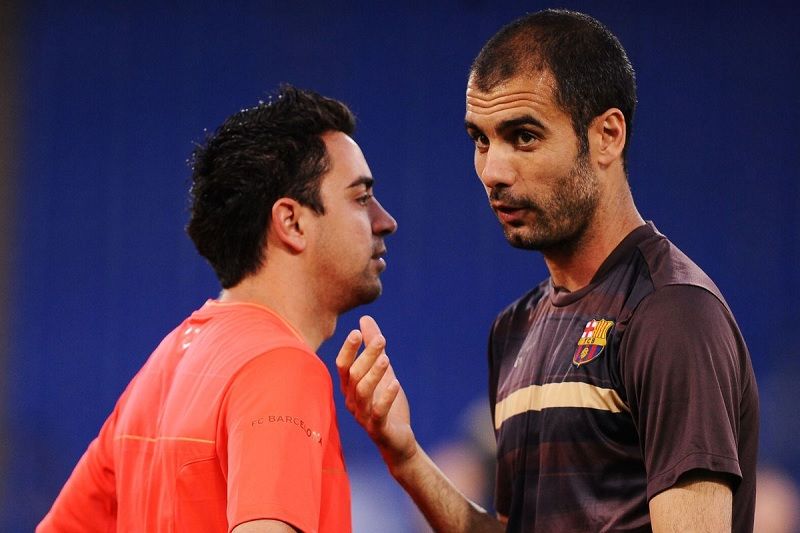
Xavi faced the inevitable comparisons to his former teammate and manager
Tactical Expectations
When Xavi took charge, there were high expectations regarding the team's tactical performance. The Barcelona style of play, known for its tiki-taka philosophy, demands technical precision and intelligent movement off the ball. Xavi's challenge was to maintain the essence of Barcelona's playing style while introducing his own ideas and adapting to modern football trends.
Fostering Young Talent
Barcelona has a rich tradition of nurturing young talents, and Xavi has continued this legacy. Players like Frenkie de Jong, Pedri, and Gavi have become vital components of Xavi's style of play. However, Xavi must strike a balance between relying on experienced players and giving young talents the opportunity to develop. It is a challenge that requires careful management of player development and integrating them effectively into the first team.
Imposing Rules and Discipline
In his first week as manager, Xavi reintroduced player fines to reinforce discipline and order within the squad. This challenge involved instilling a sense of professionalism and holding players accountable for their actions. By imposing rules, Xavi aims to create a focused and committed environment that breeds success.
Maintaining Player Happiness
Player happiness and morale play a crucial role in team performance. With a big squad, not all players can be on the field at the same time, leading to potential dissatisfaction. Xavi has had to manage egos, provide clear communication, and create a supportive atmosphere that motivates every player to contribute positively, even when not in the starting lineup.
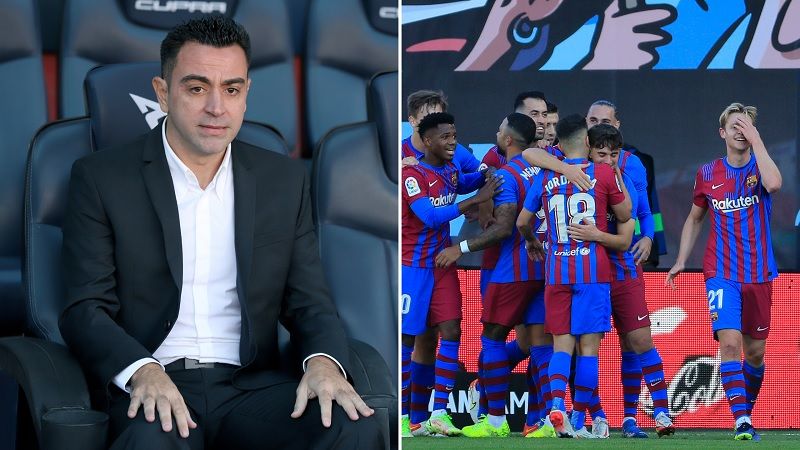
Xavi has had to manage egos, provide clear communication
Managing High Expectations
Barcelona is a club synonymous with success, and Xavi faces the challenge of meeting the high expectations of fans, the board, and the media. Every match is scrutinized, and any slip-up can be magnified. Xavi must navigate this pressure-cooker environment, keeping his team focused and performing at their best while managing external expectations.
Xavi's Influence on Barcelona's Style of Play
Before delving into Xavi's coaching influence, it is crucial to understand his background as a player. Xavi Hernandez was a world-class midfielder who played for Barcelona during their golden era. Known for his technique, vision, and team-oriented approach, Xavi's playing style laid the foundation for the success Barcelona achieved.
Drawing upon his wealth of experience and intricate understanding of the game, Xavi has seamlessly transitioned from being a player to a coach. His deep-rooted connection with Barcelona's footballing philosophy and values has allowed him to apply his knowledge effectively in his coaching role.
Xavi's Tactical Approach: Possession-based Football
One of the hallmarks of Xavi's influence on Barcelona's style of play is his commitment to possession-based football. Building upon the principles established during Johan Cruyff's reign, Xavi emphasizes controlling the game through superior ball possession. His teams focus on maintaining a high percentage of possession, using precise passing, intelligent movement, and positional awareness to dominate matches.
Evolution of Barcelona's Style under Xavi
Since taking over as coach, Xavi has implemented subtle changes to Barcelona's style of play, adapting it to the modern game. While the core philosophy remains intact, Xavi has introduced tactical tweaks to improve defensive solidity and fluidity in attack. His aim is to strike a balance between the traditional Barcelona style and the demands of contemporary football.
Xavi's Coaching Philosophy: A Reflection of Barcelona's DNA
Xavi's coaching philosophy is deeply rooted in Barcelona's DNA, which revolves around technical excellence, collective play, and an attractive style of football. He embraces the principles instilled by Cruyff, focusing on intelligent movement, quick passing, and positional interchanges. Xavi seeks to create a harmonious blend of individual creativity and team cohesion.
Although Xavi's tenure as a coach is relatively recent, his influence on Barcelona's success is already noticeable. The team has shown signs of resurgence, with improved performances on the field and positive results. Xavi's tactical acumen, combined with his ability to motivate and inspire players, has played a pivotal role in reigniting Barcelona's winning mentality.
Xavi's Approach to Player Empowerment
Xavi believes in empowering his players, allowing them to express themselves within the framework of the team's philosophy. He encourages individual creativity and freedom, fostering a sense of responsibility and ownership within the squad. Xavi's approach creates a conducive environment for players to grow and thrive.
Players who have worked under Xavi, both at Barcelona and during his time in Qatar, have lauded his coaching abilities and leadership qualities. Experts in the footballing world have also praised Xavi's tactical intelligence and his ability to adapt his style to suit the players at his disposal.
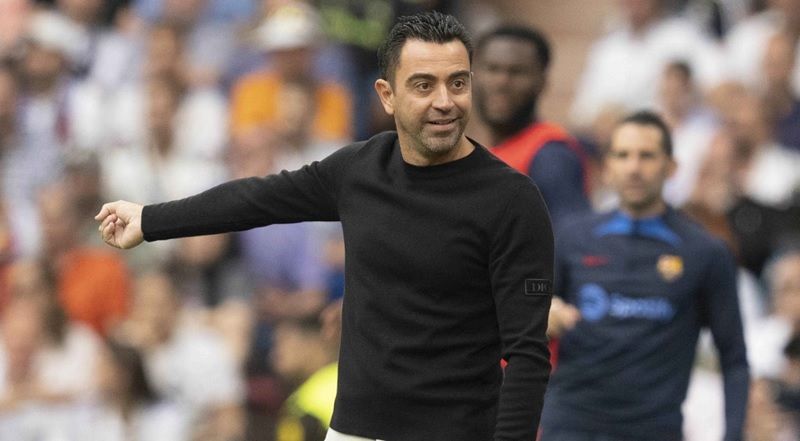
Xavi's influence on Barcelona's style of play is his producing aesthetic and attractive football
Xavi's coaching approach is characterized by adaptability and flexibility. While staying true to Barcelona's principles, he adjusts his tactics based on the opposition, the strengths of his own squad, and the demands of each game. This adaptability allows Barcelona to remain competitive and effective in different scenarios.
One of the key aspects of Xavi's influence on Barcelona's style of play is his unwavering commitment to producing aesthetic and attractive football. Barcelona's matches under Xavi's guidance are marked by fluid passing, intelligent movement off the ball, and a focus on attacking play. Xavi's teams aim to entertain fans while achieving success on the field.
Xavi's Long-Term Vision for Barcelona
Xavi's vision for Barcelona extends beyond immediate success. He aspires to build a sustainable footballing model that can withstand the test of time. Xavi emphasizes the importance of developing young talent, fostering a strong identity, and maintaining the values that have defined Barcelona throughout its history.
Xavi's Impact on Spanish Football
Xavi's impact extended beyond his contributions to FC Barcelona. He played a pivotal role in Spain's dominance on the international stage, helping the national team achieve historic victories in major tournaments. Xavi's technical brilliance and intelligent playmaking were instrumental in Spain's success in the UEFA European Championships in 2008 and 2012, as well as their triumph in the FIFA World Cup in 2010. His ability to control the midfield and distribute the ball effectively played a crucial role in Spain's possession-based style of play, which became synonymous with their success.
Xavi's illustrious career is adorned with numerous honors and achievements. He won multiple domestic titles, including La Liga and the Copa del Rey, with FC Barcelona. On the international stage, Xavi played a vital role in Spain's triumphs at the European Championships in 2008 and 2012 and the World Cup in 2010. Individually, he received prestigious awards such as the FIFA World Player of the Year finalist and UEFA Best Player in Europe Award.
Xavi's impact on Spanish football extends far beyond his playing days. His influence can be seen in the way Spanish teams approach the game, with an emphasis on possession, intelligent movement, and technical ability. His style of play has become an integral part of Spanish football's identity, inspiring future generations of players to embrace a similar philosophy.
Xavi's contribution to the evolution of Spanish football cannot be overstated. His ability to control the game and dictate play from midfield set new standards for the position. Xavi's technical brilliance, vision, and passing accuracy redefined the role of a central midfielder and influenced how the position is perceived and played today.
Xavi's Vision for Barcelona's Future
Xavi's deep connection with Barcelona is undeniable. As a player, he embodied the essence of the club's style of play and was a key figure in their success. Known for his exceptional passing ability and tactical intelligence, Xavi played a pivotal role in Barcelona's triumphs, including their 2015 European Cup victory.
Before returning to Barcelona, Xavi had a successful spell managing Al Sadd in Qatar. This experience allowed him to further develop his managerial skills and gain a fresh perspective on the game. Barcelona recognized his potential and appointed him as the manager, knowing that he could bring a new era of success to the club.
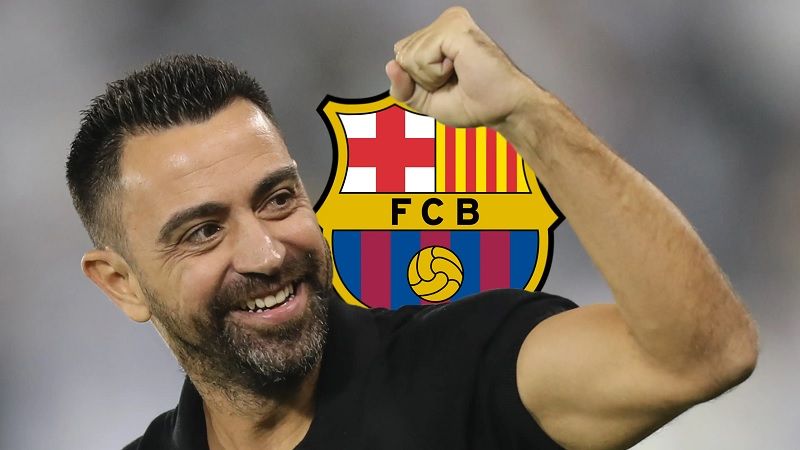
Xavi's vision for the 'new Barça' includes the potential return of the legendary Lionel Messi
Under Xavi's guidance, Barcelona has experienced a remarkable transformation. The team has embraced his philosophy of possession-based football, focusing on quick passing and fluid movement. Xavi has instilled a renewed sense of identity and purpose, with the players exhibiting a greater understanding of their roles on the pitch. This resurgence has been met with enthusiasm from both the fans and the footballing world.
Xavi's vision for the 'new Barça' includes the potential return of the legendary Lionel Messi. While Messi's future remains uncertain, Xavi has expressed his desire to bring him back to the club. Recognizing Messi's immense talent and understanding of Barcelona's style, Xavi sees him as a vital component in the team's future success. However, the decision ultimately depends on fair play regulations and various other factors.
Looking ahead, Xavi has identified the midfield as a top priority for Barcelona in the upcoming summer transfer market. A strong midfield presence is crucial for executing his possession-based style effectively. Xavi aims to bring in talented midfielders who can seamlessly integrate into his system and contribute to the team's success.
Xavi's Tactical Philosophy and Innovations
Understanding Xavi's Tactical Philosophy
- Possession-based Football
Xavi's tactical philosophy is rooted in a possession-based style of play. He emphasizes controlling the game by maintaining high possession percentages, allowing his team to dictate the tempo and dominate proceedings on the pitch. Xavi's teams are characterized by their fluid passing, quick transitions, and precise ball circulation, which enables them to control the rhythm of the match.
- Defend Forward
A notable aspect of Xavi's philosophy is his approach to defending. He believes in defending from the front, applying intense pressure on opponents to win the ball back high up the pitch [3]. This tactic carries risk as the player pressing leaves his mark, requiring a teammate to provide cover from behind. Xavi's teams press with high intensity, aiming to suffocate the opposition and regain possession quickly.
- Positional Play
Positional play is another crucial element of Xavi's tactical philosophy. He advocates for a structured and organized approach to the game, emphasizing the importance of players maintaining specific positions while constantly adjusting to create passing options [7]. Xavi's teams focus on creating numerical superiority in different areas of the pitch, allowing for effective ball circulation and exploiting spaces in the opponent's defense.
The Innovations of Xavi Hernandez
- All-Attacking Style
Xavi's teams are known for their all-attacking style, prioritizing offensive prowess over defensive caution. He prefers to score more goals than his opponents, even if it means conceding a few in the process. This philosophy reflects his belief in the power of relentless attacking football, aiming to entertain fans while securing victories.
- Group Exercises in Training
An innovative approach introduced by Xavi is the use of group exercises in training sessions. He divides players into lines or groups, focusing on specific facets of defense or attacking maneuvers. This method allows players to develop a better understanding of their roles within the team structure and enhances their collective tactical awareness.
- Specific Facets of Defense
Xavi pays close attention to the defensive aspects of the game and dedicates training sessions to specific facets of defense. By honing in on areas such as pressing, positioning, and collective defending, Xavi's teams become well-versed in executing defensive strategies effectively [2]. This attention to detail enables his teams to maintain a solid defensive foundation while remaining committed to their attacking principles.
Xavi's Tactical Approach at Barcelona
Xavi's tactical approach at FC Barcelona builds upon the club's renowned possession-based style while incorporating his own innovative ideas. Though the specifics of his tactics remain somewhat mysterious, it is apparent that Xavi wants his team to utilize the ball to their advantage. His focus on positional play, fluid passing, and high pressing aligns with Barcelona's historical style of play, allowing for a smooth transition as he takes charge of the team.
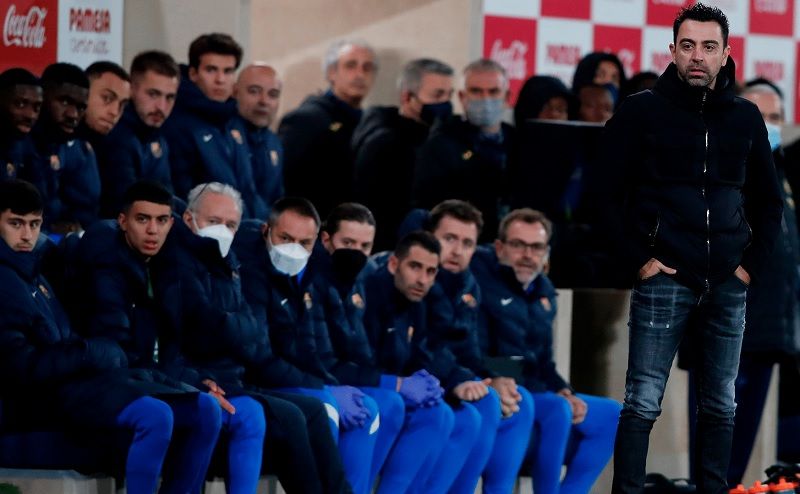
Xavi's coaching philosophy centers around instilling his tactical ideas and principles into his players, transforming their understanding of the game. During his time at Al-Sadd, he successfully infused his philosophy into the players, leading to remarkable transformations and a series of trophy victories. Xavi's coaching style emphasizes teamwork, discipline, and a commitment to his footballing ideals.
The Barcelona Way: Influences and Beliefs
Xavi's tactical philosophy aligns with the "Barcelona way," a footballing ideology deeply rooted in the club's history. Influenced by his own playing career and the club's rich heritage, Xavi has embraced and expanded upon the principles that define the Barcelona style of play. His beliefs about the game, combined with his understanding of positional play, have allowed him to perpetuate the club's renowned footballing traditions.
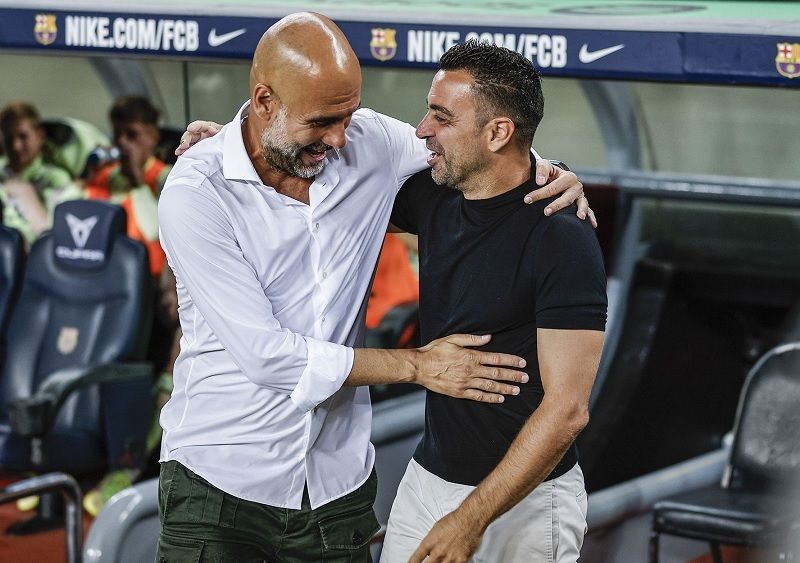
While Xavi's specific tactical choices as manager of FC Barcelona remain somewhat undisclosed, his philosophy and style of play provide valuable insights into his approach. Whether utilizing a 3-4-3, 4-3-3, or 3-5-2 formation, Xavi's teams prioritize ball possession, fluid passing, and an attacking mindset. These tactical choices are influenced by his desire to control the game and create opportunities using the ball as a strategic weapon.
Xavi's Impact on Al-Sadd and Qatari Football
Xavi's appointment as the manager of Al-Sadd in Qatar has had a profound impact on the team and Qatari football as a whole. He brought his tactical innovations and experience to the club, transforming their playing style and achieving impressive results. Xavi's influence has extended beyond Al-Sadd, elevating the level of football in Qatar and inspiring young players to embrace a more sophisticated and dynamic approach to the game.
- Xavi was known for his technique, vision, and team-oriented approach. His playing style laid the foundation for Barcelona's success.
- Xavi has emphasized possession-based football, made tactical adjustments, and focused on player development, leading to a resurgence in Barcelona's style of play.
- Players and experts have praised Xavi's coaching abilities, tactical intelligence, and adaptability.
- Xavi aims to build a sustainable footballing model by developing young talent, maintaining Barcelona's values, and achieving long-term success.
- Additional information about Xavi's coaching philosophy can be found in the provided web search results.

Related Content
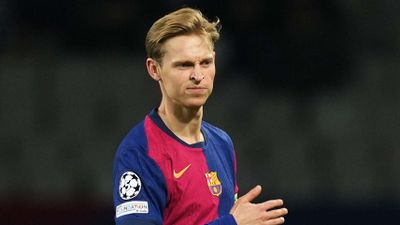
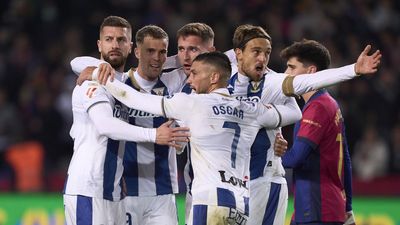
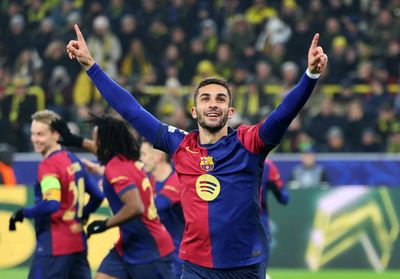
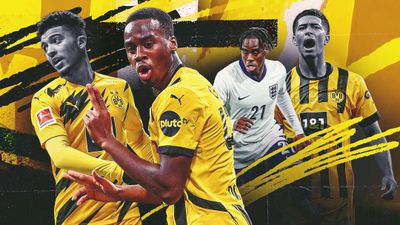
![10 Greatest Attacking Teams in Football History [Ranked]](https://cdn.betimate.com/400x0/left/top/smart/https://betimate.com/uploads/images/news/10-greatest-attacking-teams-in-football-history-ranked-1733813736.jpg)





















